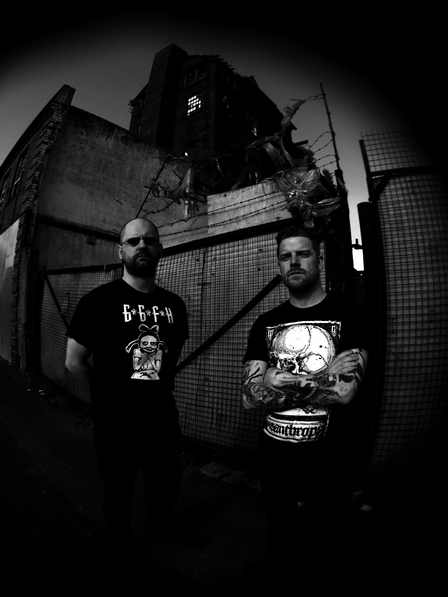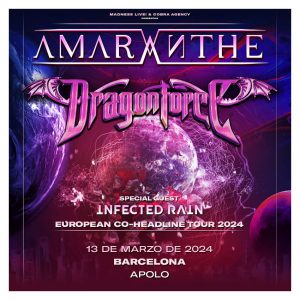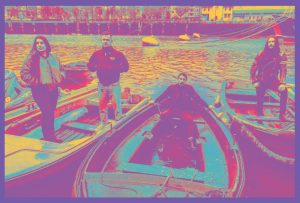ANAAL NATHRAKH (Eng.)
– Hello and first of all, thanks for taking the time. What are you currently up to? What’s going on with ANAAL NATHRAKH?
Hello. No problem. At the moment we’re pretty busy with interviews and so on, which is how it always is after an album comes out. It’s cool to see that people have heard and thought about the stuff you’ve just released, and found it compelling enough that they want to talk about it with you. For all that Anaal Nathrakh is a misanthropic entity in itself, we’re still people, and we’re humbled and appreciative when there’s a strong reaction to our music.
– You are about to unleash your latest opus, «Desideratum». How are you feeling about it? Are you totally pleased with the final outcome?
Yes, we’re very satisfied with how it turned. Really, we should be – we do everything ourselves. So if we’re not totally happy with it, it’s not anyone else’s fault. It means we haven’t finished it yet. But yeah we’re very pleased with the album. We’re proud of it.
– Starting to dig into this opus; what’s the origin behind its title?
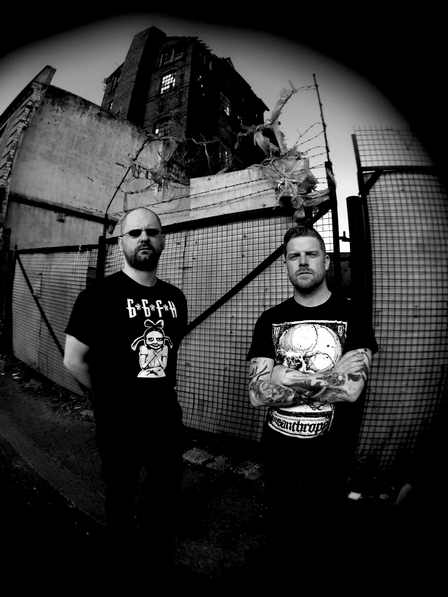
It’s a bit complicated to put into a couple of sentences. I found myself using the word in an argument about the afterlife. My point was that how ever much you want something, that doesn’t mean it’s real. Then I found a piece written by Bertrand Russell called ‘A Free Man’s Worship’ which addressed some related considerations. And when I was a kid, there was a copy of the poem Desiderata in the house, and I realised that the sense of peace and centeredness in the poem wasn’t possible for me any more. How wonderful it would be to be able to get it back. And how bitter the realisation that it is impossible. So I thought a lot about desire, acquisition of desired things and desperate lack of desired things, and the title is intended to gesture towards all of that. I see much of modern society as a series of instruments for the manipulation of desire. Diversions, distractions, kettling of the mind. And so much of it meaningless. The fact that it could be otherwise, yet never will be because of what we as a species are, that causes rage and bitterness. There’s a lot more I could say, but hopefully you get the general idea.
– As always, this album has a strong misanthropic feeling to it. Is this something you strive for with your music?
Strive for? No. It comes naturally.
– This feeling also fits quite good your lyrics so, what are they based upon?
Well I touched on a few things a moment ago. It can be anything that triggers lyrics. Bastardising passages from the bible, news reports, books. There’s a song on the album that’s partially about World Health Organisation figures reported in Thomas Pogge’s work. And a lot of just observing the world. I have a chronic obsession with the idea that reality isn’t what we think it is. Not in a conspiracy theory way. Although I do think we’re manipulated by obscure forces, I don’t tend to think that it’s a discrete cadre of powerful individuals. It’s too complicated for that, it’s just a function of themes in society, some kind of cultural equivalent of genetic memes, I suppose. But no, it’s our perceptions that I think are at fault. We see only a mediated representation of the world, and we fail to perceive a lot of what’s really going on. Nietzsche said similar things several times, and he’s not the only one. So a lot of our lyrics in general are born out of a sense of bitterness that the world is the way it is when it could be something more. The rage of nihilism, I suppose. On this album in particular, there’s a theme of desire running through a lot of the lyrics, but there’s a lot that’s more tangentially related – contemporary idolatry, ersatz gods such as science or ‘the market’, determinism versus free will, stuff like that. The quick answer is that there’s a lot of anger, a bit of madness, and a whole lot of hate.
– Due to this I wonder how does your mood or views/opinion on the today’s world affect what you release with ANAAL NATHRAKH.
A lot of Anaal Nathrakh is a reaction to the world. We’re not a fantasy band, we’re not dealing with dragons and warriors and that stuff. We’re dealing with the world as it is, and the fact that the world isn’t how it often seems to us as human beings. We tell ourselves that we’re basically nice. And on an individual level we often are. But the world of our actions as a species is a litany of disgusting brutality, exploitation and inhumanity. I see most of what happens today as a cynical process of manipulation and control, right down to the level of morality. The mindset or perspective of Anaal Nathrakh is a distilled part of what I think myself. In reality, what I think about various things from various points of view has to be moderated by other influences and the need to be able to survive and even strive to be happy. From the comparatively unfettered point of view of Anaal Nathrakh, most of the world is disgusting.
– Even hough «Desideratum» sounds just as pissed off as always, I think you manage to blend quite good Grindcore’s speed with slower samples with strong ambiences and melody. Your music is always insanely brutal, but with contrasts. Are contrasts necessary to make the most brutal part sound even more brutal? Could you say they are an important part of your music?
Yes, absolutely. Contrast is what we perceive more than anything else. For example the school experiment of putting one hand in hot water, and the other in cold water, and then putting both hands in water at room temperature. When you do that, one hand feels the water is cold and the other feels that it’s hot, despite both hands being in the same water. We don’t typically perceive absolutes, but contrasts. And the same goes for music. A melody doesn’t have all that much to do with individual notes, it’s the differences between the notes, which are called intervals, which make music happen. Contrast and dynamics are essential to make music compelling. That’s one reason why we have more contrasts than most other bands.
– For example I think here there are some of your most melodic riffs to date so, how do you tend to work on the songwriting process? I mean, before starting to work on an album, do you already have a certain image in your mind or do you just go with the flow in a more spontaneous way?
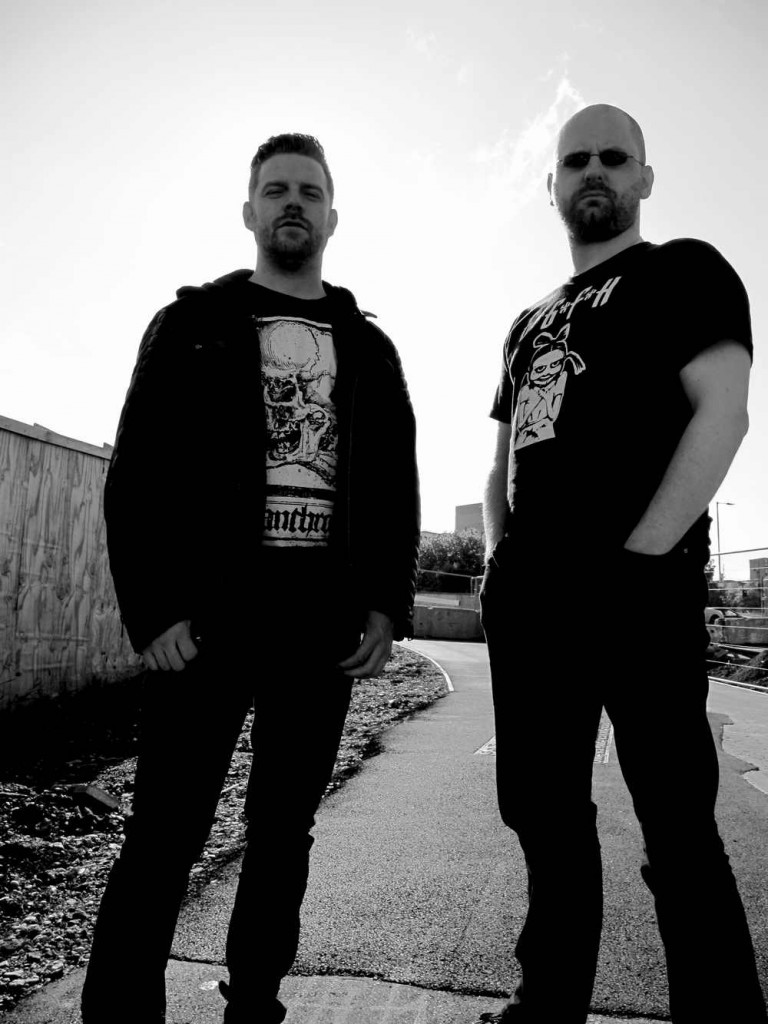
Kind of both. We have an overall idea in that Anaal Nathrakh is kind of a translation of a sensation we have in our heads in the first place. But we don’t have a rigid plan. So we kind of have a destination in mind, but get there by letting the road lead where it will. It’s an instinctive thing, so that may not make obvious sense, but it works for us. And it lets us keep an element of spontaneity in the music, which I think is important to the experience of the listener. Essentially, it keeps things interesting and gives everything a sense of energy. That’s certainly how it sounds to us, at least.
– Overall there’s a good equilibrium between blasting brutality and a subtle sense of melody. Is it easy to get a good equilibrium? Is it easy to add some melodic touches without loosing aggression?
It’s easy for us because it comes naturally, instinctively. If it were a matter of having to figure out how to do it, it might be harder, or at least more complicated. But as we’re driven by an essential idea, and then just let the inspiration flow where it will, it comes naturally to us. It’s just a matter of structuring things properly, and Mick has improved his already impressive understanding of how to do that.
– You have a really singular sound, a mechanized sound, even almost Industrial at times, so in your music sound/production is really important I could say. Things have changed a lot since your debut album came out in 2001, specially when it comes to gear. How could you say have years affected the band’s sound in terms of mixing/production/gear?
Well we certainly use very different gear to what we used to begin with. We used I think an 8 track tape based thing to record the first album we did. Or maybe it was the hard disc recorder we got after that. But either way, compared to the Macs and Cubase stuff you can get now, it was incredibly primitive. Nowadays you can get hold of equipment and software that can approach state of the art quite easily and cheaply by comparison. That said, none of it matters unless you know what you’re trying to achieve and can do the right things to achieve it. It’s not necessarily that the new stuff makes it possible to achieve totally different things, just that it makes it easier to achieve them, and to have more control over the finished result. We spend a lot of time on what you might call post production now, whereas before we spent hardly any. In the past it was mostly a case of getting the levels right on everything and that was about it. Not we can revise song structures, accentuate or tone down many different aspects, fine tune individual parts of mixes and so on. And we spend a lot of time on mastering, which has a huge effect on an album. Yes it makes a difference to the sound itself, but it makes just as much difference to the overall feel of an album. And that’s very hard to nail down. So there are still bits that are very tricky and require a lot of work, it’s just that they’re more sophisticated aspects than previously. The technology doesn’t make it easier to make an album. It just means that there’s more you can do to control things. If you know what you’re doing, that means the results can be a lot better, but you’ll still have to work to achieve them. Garbage in still equals garbage out. There are no cheats.
– This sound helps make everything feel calculated, but I think this is just because of the sound itself and not because of the actual nature of your music, as the overall fury feels really passionate and spontaneous. So, what could you say guides your music (feelings, thoughts…)?
Definitely feelings. There are thoughtful aspects to what we do, especially in the lyrics etc, and in parts of the production process. But that thoughtfulness is always in service of the feeling which drives the music. Thought is a tool, not design principle. The fundamental thing is always the feeling.
– All this about «Desideratum» being said; how could you describe it in just 3 words?
I’ve no idea. Bistering, I think. Or perhaps raging. But also passionate. And certainly crazy. You tell me…
– This has been your first opus with Metal Blade after releasing some albums with Candlelight Records. How has everything been with them thus far? When you already have a name into the scene, do you actually feel any kind of change when moving from a certain company?
It’s been fine so far. And while the basic function of a record label is largely the same from company to company once you’re at a certain level, it nevertheless makes a difference. Not to the musical side of things, as I don’t think a label would be silly enough to try to tell us what to do. But in terms of the experience of dealing with the label, there’s a difference. Metal Blade is a bigger label than those we’ve dealt with in the past. For example they have dedicated offices in different territories. So from our point of view we’re speaking to more people in a greater variety of places than previously. With Candlelight, who aren’t a tiny label in the first place, there were mainly one or two people we’d deal with for everything. With metal blade there are five main people to deal with just for interviews etc. And that’s just in our case – there are other people there doing other things, too. So it definitely feels like a bigger organisation to deal with, and that necessitates that they are pretty organised themselves. Which is good for us. Record labels make a big difference to the daily life of a band, but the fact remains that we’re about making and playing music more than anything else. So a well organised, professional label just means we can concentrate more easily on the things that actually matter to us. The ‘business’ side of things is best when it takes care of itself as far as possible. And it’s been a positive experience dealing with Metal Blade so far. We’re optimistic about how it will be as we go on.
– And finally, what are your near-future plans?
At the moment we’re looking at shows we’ll be playing in the new year. We’ve got a number of festivals lined up, and we’re adding more and considering club shows etc at the moment. IT should be an interesting year. As well as that, we also have an idea or two for what we might want to do next musically. It’s not like we’re about to start recording our next album, but we have set a foot or two on that road. So we’ll have to see when the time feels right, and that could be sooner than you might expect. But we feel rather than plan, so we still have no clue ourselves yet.
– That’s all, thank you once more for answering our questions. If you want to add some final words; feel free to do it.
Thanks you for wanting to ask them, and thanks to anyone who cared enough to read this. We appreciate the support.
